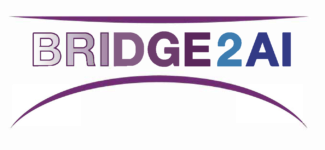Upcoming Events

- This event has passed.
B2AI Discussion Forum on Emerging ELSI Issues: “Re-identification Risks in Wearable Sensor Data: Ethical and Privacy Challenges in Digital Health Research” by Dr. Nebeker and Kumar

Have you collected or are interested in collecting accelerometry data acquired from wrist-worn devices, like a smartwatch or fitness tracker in your field study? Are you curious about the re-identification risks such data may or may not pose to your participants? This seminar will focus on increasing your awareness and perceptions of a potential risk to participant privacy from the use of wrist-worn motion sensors like activity trackers or smartwatches – specifically privacy risks associated with re-identification from raw accelerometer data. Using two case studies, we examine how raw accelerometry data can be traced back to individuals, the implications for research participant privacy, and strategies to mitigate risks. Join us for a critical discussion on safeguarding participant privacy in digital health research.
Bio:
Dr. Camille Nebeker directs the UC San Diego Research Ethics Program and is a professor of public health with appointments in the UC San Diego Design Lab and the Herbert Wertheim School of Public Health and Human Longevity Science. In 2018, Dr. Nebeker co-founded the ReCODE Health center, which is dedicated to conducting cutting edge research to inform ethical practices in digital/AI health research – including machine learning and the use of large language models. The ReCODE Health center supports education and consultation services to guide ethical practices in technology-supported health research across diverse research sectors including traditional academic research and, increasingly, the health technology sector. She’s a principal investigator with the Bridge2AI Center’s Ethical, Legal and Social Implications Core.
Dr. Santosh Kumar is the Lillian and Morrie Moss Chair of Excellence Professor in the Department of Computer Science at the University of Memphis. He directs the NIH-funded mDOT Center and previously led the NIH-funded MD2K Center of Excellence. He is also co-founder and CEO of CuesHub, PBC. Santosh’s research has resulted in wearable AI for detecting stress, smoking, craving, drug use, brushing, flossing, and stressful conversations from physiological and motion sensors. His team has developed software platforms for smartphone, smartwatches, and cloud that has been used across the country for collecting hundreds of terabytes of mobile sensor data from over 3,000+ human volunteers in their natural environments as part of various scientific user studies that are being used for understanding privacy risks and developing foundation AI models for wearable sensors.
ZOOM ID: 817 5305 8557
